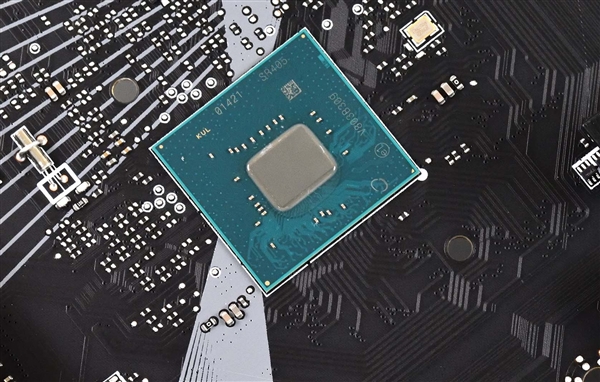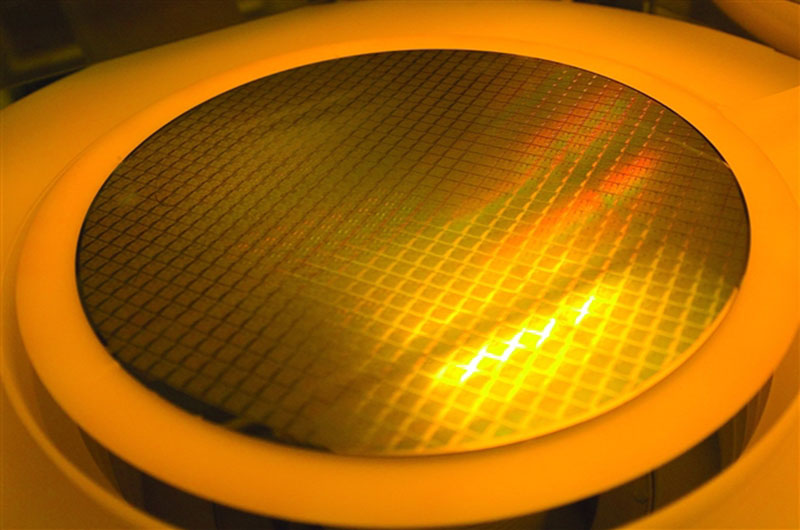
Time:2024-12-09Reading:1161Second
On December 5th, it was reported that the semiconductor industry has always been a focal point of technology competition between China and the United States, and has recently caused another stir. On December 2nd local time, the US Department of Commerce launched its third regulatory crackdown on China's semiconductor industry in nearly three years, adding 140 Chinese companies to the entity list, involving semiconductor manufacturing equipment, wafer fabs, EDA tools, and semiconductor industry investment companies. This is the largest number and scale of newly added "entity list" companies in the history of US chip sanctions against China.
In response to this, the Chinese side quickly took countermeasures on key raw materials such as gallium, germanium, antimony, superhard materials, graphite, etc. on December 3, shifting from defensive defense to active and strong counterattacks.
The scope of US sanctions against China has been further expanded, involving semiconductor investment for the first time
Continuing the new policy strategy for 2022 and 2023, the United States will further expand the depth and scope of sanctions this time. Firstly, new controls will be implemented on the semiconductor manufacturing equipment required for the production of advanced node integrated circuits, including new restrictions on certain etching, deposition, lithography, ion implantation, annealing, metrology and testing, and cleaning equipment.
The second is to implement new controls on software tools for developing or producing advanced node integrated circuits, including software that improves the production efficiency of advanced equipment or enables lower end equipment to produce advanced chips. The third is to implement new regulations on high bandwidth memory (HBM). HBM is an important component of large-scale artificial intelligence training and inference, as well as a key component of high-performance integrated circuits.
The US Department of Commerce openly mentioned in the document that these measures are aimed at restricting China's ability to independently produce advanced technologies, delaying China's ability to develop artificial intelligence, and weakening China's localized advanced semiconductor ecosystem. The heart of chip hegemony is clearly exposed, revealing the United States' attempt to further deepen the "blockade" and containment of China's entire semiconductor industry chain through encirclement and blockade.
The 140 newly added companies in the "Entity List" are mostly concentrated in semiconductor equipment companies, with a total of over 100 companies, including North Huachuang, Shengmei Shanghai, Tuojing Technology, Xinkailai, etc; There are also software companies, such as Huada Jiutian, as well as research institutions such as the Institute of Microelectronics of the Chinese Academy of Sciences and Zhangjiang Laboratory, aimed at restricting China's access to advanced semiconductor technology and related manufacturing capabilities.
However, it is noteworthy that there are also two investment companies on the list, namely Wise Road Capital and JAC Capital. This is the first time that the United States has involved the investment sector in its pursuit and blockade of China's semiconductor industry.
According to an internal report in the United States, the reason for including two investment institutions in the entity list is based on research and analysis by the US side: the past investment projects of the two companies involved objects that are extremely important to China and have advanced semiconductor manufacturing capabilities, effectively helping China to achieve localization of the semiconductor manufacturing ecosystem and supplement and strengthen the supply chain.
Behind this incident, it actually reflects that although Zhilu Capital and Jianguang Asset Management have been low-key and unknown in the public eye in recent years, their actions are crucial. Although the establishment time of the two investment companies is short, Zhilu Capital was established in 2017 and Jianguang Asset was established in 2014.
In just 10 years, the two companies have successfully participated in or led dozens of large-scale overseas mergers and acquisitions and joint venture projects. These projects focus on the hard technology and chip industries, achieving investment layout throughout the entire semiconductor value chain.
In addition, the two investment institutions have established strategic partnerships with more than 300 domestic industry alliance enterprises, as well as globally leading semiconductor companies and multinational giants in the technology field, which is an important force in promoting the strengthening of China's semiconductor industry's chip supply chain. However, the glorious achievements have also attracted attacks and restrictions from the United States, and have suffered unfair treatment in this round of sanctions.
Strong counterattack, China launches multiple countermeasures
In response to the above-mentioned actions of the United States, China has quickly countered in the past 24 hours, with multiple institutions including the Ministry of Commerce, the Ministry of Foreign Affairs, and important industry associations issuing multiple heavy punches in response to the unreasonable suppression by the United States.
On December 3rd, the Chinese Ministry of Commerce issued a notice prohibiting the export of dual-use items to US military users or military purposes. Meanwhile, dual-use items related to gallium, germanium, antimony, and superhard materials will not be allowed to be exported to the United States in principle. For the export of graphite dual-use items to the United States, stricter end-user and end use reviews will be implemented.
In the field of semiconductor manufacturing, the importance of materials such as gallium, germanium, antimony, and graphite is self-evident. For example, in 5G communication devices, gallium plays a key role in ensuring fast and stable signal transmission; In fiber optic communication equipment, germanium is even more indispensable. These materials also play a crucial role in military equipment such as high-precision missiles, high-end radar systems, and night vision devices.
On the same day, China Semiconductor Association, China Automobile Industry Association, China Internet Association, China Communications Enterprise Association and other core institutions also responded intensively. The four major associations respectively stated that the US export restrictions on China violate the spirit of the World Semiconductor Council Charter, cause damage to the security and stability of the global semiconductor industry, seriously undermine international trade rules, and affect the stable supply of US chip products. They called for cautious procurement of US chips to ensure the security and stability of the industrial and supply chains.
Unlike some industry associations in China with a civilian nature, these four associations have a certain semi official color. They express the same viewpoint in similar language at the same time, which is not only a guide within the industry, but also a policy signal second only to the mandatory orders of national ministries.
Reuters reported that the recommendations of several major industry associations in China may affect American chip giants such as Nvidia, AMD, and Intel. Despite being subject to export controls, these companies still manage to continue selling their products in the Chinese market.
According to the South China Morning Post in Hong Kong, the Chinese market accounted for 27% of Intel's total revenue last year. From the end of July to the end of October this year, Nvidia's revenue in China reached 5.41 billion US dollars, accounting for about 15% of the total revenue.
The United States' bold launch of a new round of regulatory measures will undoubtedly bring new obstacles to the development of China's semiconductor industry, seriously disrupt the layout and development of the global industry, and bring a blow to the United States' own semiconductor enterprises, which will harm others but benefit oneself.
But from another perspective, this will also prompt China to abandon its illusions on the development path of the semiconductor industry, and more firmly explore a development model of independent innovation and self-reliance, further accelerating the localization process of the entire industry chain with resilience and potential.
Practice has proven that the semiconductor industry is a global field, and its development relies on cross-border cooperation and technological innovation. An open international cooperation framework can promote the exchange of knowledge and technology, and accelerate the pace of innovation. The Chinese semiconductor industry will continue to uphold an open mindset, fully leverage the advantages of various links in the entire industry chain, as well as international investment institutions such as Zhilu, deeply link global technological resources, and jointly promote human technological progress.





